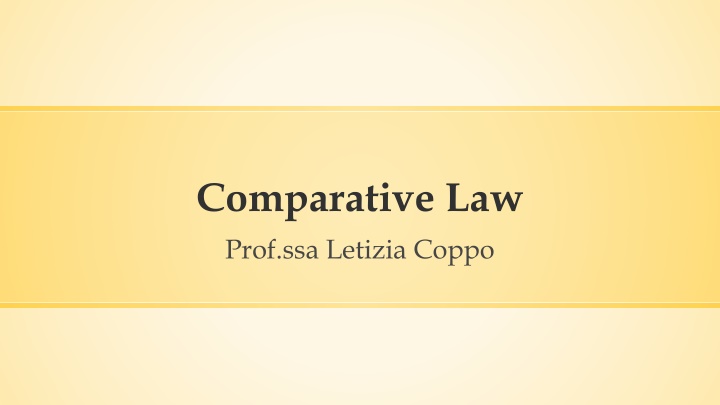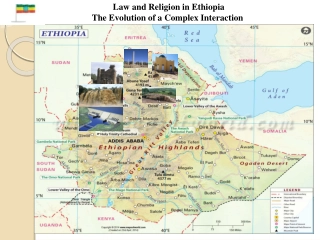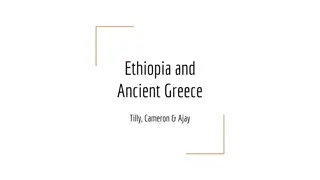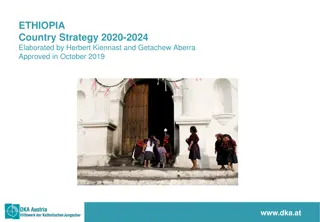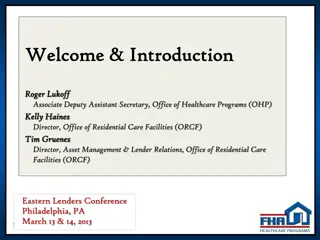Strengthening Healthcare Facilities in Ethiopia
The 2018 Ethiopia SARA report highlights initiatives to improve WASH services in health facilities, focusing on sanitation, water sources, and quality of care. National interventions and collaborations aim to address gaps, with a budget allocated for the CATCH-IT initiative. While strengths include leadership priorities and standards integration, gaps in budget, coordination, design, and leadership commitment need to be addressed.
Download Presentation

Please find below an Image/Link to download the presentation.
The content on the website is provided AS IS for your information and personal use only. It may not be sold, licensed, or shared on other websites without obtaining consent from the author.If you encounter any issues during the download, it is possible that the publisher has removed the file from their server.
You are allowed to download the files provided on this website for personal or commercial use, subject to the condition that they are used lawfully. All files are the property of their respective owners.
The content on the website is provided AS IS for your information and personal use only. It may not be sold, licensed, or shared on other websites without obtaining consent from the author.
E N D
Presentation Transcript
Comparative Law Prof.ssa Letizia Coppo
THE ROMANISTIC LEGAL FAMILY GERMAN LAW
THE SPIRIT AND ESSENTIAL FEATURES OF BGB The BGB was enacted in a period of relative social and political stability, so their spirit is conservative: it seeks to maintain a situation favourable to the establishment. retrospective and reflective, The BGB reflects the social model of Bismark s Empire: he was a liberal bourgeois who created the German nation by cooperating with Prussia s conservative authoritarianism.
THE SPIRIT AND ESSENTIAL FEATURES OF BGB The Code was infused with a marked liberalism and the belief that the general good would spontaneously flow from the interplay of economic forces, provided that the State did not interfere. But the drafters of the BGB were blind to the great social changes and challenges that were affecting Germany between the 1870s and 1880s.
THE SPIRIT AND ESSENTIAL FEATURES OF BGB Language, method and conceptual structure: it came from Pandectist school. The BGB is not addressed to citizens, but to lawyers; it waived whatever ambition of educating its lay readers. Key-words: exhaustiveness; but complex syntax and sometimes gothic style. The BGB was the legal calculating machine par excellence . accuracy and rigour of thought; clarity;
THE STRUCTURE OF THE BGB Book I. Allgemeiner Teil (General part) Book II. Recht der Schuldverh ltnisse (Law of obligations) Book III. Sachenrecht (Law of property) Book IV. Familienrecht (Family Law) Book V. Erbrecht (Law of Successions)
THE STRUCTURE OF THE BGB Book I. Allgemeiner Teil (General part) It does not contain general rules about the exercise of rights in society or basic principles in the construction of statutes, customary law, the powers of judges or burden of proof. Instead it contains certain basic institutions common to the whole of private law, which are recurring throughout all the other books of the BGB (for this and the other books, see Annex I)
THE STRUCTURE OF THE BGB Pros and cons of Allgemeiner Teil The fact of providing rules in a preliminary and general part constantly raises doubts about their scope of application. Sometimes such a location can be misleading for novices and foreign lawyers, as they would expect to find certain rules in a different place. Great fascination on foreign jurists, mostly for teaching (see Saleilles,Austin and the Allgemeine Rechtlehre).
HOW COULD THE BGB SURVIVE TO WORLD WARS? The example of contract law It is dominated by the bourgeois idea that contracting parties are formally free and equal. Key principles: freedom of contract/party autonomy and the duty to keep one s promises. Voidness when the contract is against bonos mores or if one party unfairly exploited the inexperience or lack of judgment of the other.
HOW COULD THE BGB SURVIVE TO WORLD WARS? But all that proved inadequate to face social challenges as the bourgeois state gave way to the social democracy. Judges and legislators had to qualify and limit the liberal principles of contract law, wherever they gave one party the power to threaten the basic conditions for a decent life which must be guaranteed by the social state. Legislators enacted special statutes; judges used general clauses.
HOW COULD THE BGB SURVIVE TO WORLD WARS? Legislative interventions: special statutes on housing, tenancies, agricultural holdings and most of all labour. General clauses: Treu und Glaube (Good faith); rebus sic stantibus; abuse of rights; Wegfall der Gesch ftsgrundlage (Fall of the ground of the transaction); prohibition of venire contra factum proprium. Applications: control on liability limitation clauses in GTC; impossibility to perform (Unzumutbarkeit, Unm glichkeit); duties of protection (Schutzpflichten).
